
The National Development Fund and Countering the Coronavirus Fallout
The editorial of Tejarat, written by the former Economy Minister Abbas Akhundi, mentions that the Iranian government must use the National Development Fund to support Iranian households as well as small and medium businesses during the coronavirus crisis.
To decrease the impact of the coronavirus disease, the government must issue $20 billion worth of corporate bonds, backed by the National Development Fund. The coronavirus has impacted both supply and demand, driving the economy towards hard inflation.
Considering the direct impact of the virus on employment resulting in the unemployment of 3 million people, and the closure of thousands of small and medium businesses, immediate and targeted government intervention is necessary.
Combatting the coronavirus is on the agenda of all governments around the world. Before assessing the stimulus package announced by the government, it must be noted that inattention or disproportionate measures against the coronavirus crisis can have catastrophic consequences. So any policy must aim at promoting social solidarity.
The Iranian government’s support package is not proportionate with the depth of the current calamity. At least $20 billion worth of corporate bonds, backed by the National Development Fund, must be allocated to support households as well as small and medium businesses. This is tantamount to 5 percent of Iran’s GDP. We should keep in mind that other countries are helping their citizens up to 20 percent of their GDP.
The point is that if the National Development Fund is not used to help the people impacted by the coronavirus crisis, what is its purpose? Is there any development more important than that of social and economic national solidarity?
Go Back to Your Rooms and Think About What You Have Done!
The editorial of Hamdeli suggests that Iran’s “reformists” must go back to their rooms and think about why they have failed in fulfilling their promises and meeting public demands.
The left wing in Iran — led by Iran’s “reformists” for several decades – has no place within the power structure anymore. Yet despite many criticisms against the “reformists” backing Rouhani and the formation of the 10th Parliament, they can still make people believe in the possibility of change and reform within the ruling system.
However, over the past two elections – one which led to Hassan Rouhani’s presidency and the other to the “reformists” having a large majority in Parliament – public views about the “reformists” have undergone a transformation. Even though prominent “reformist” figures are not present in the political sphere and executive branch, the Iranian people have blamed them for the inefficiencies of the current government and Parliament.
Although the “reformists” distance themselves from the government’s and the Parliament’s performance, they must admit to their own share in the executive and legislative branches’ performance. The “reformists” evading this responsibility is a breach of their contract with the people who went to the polls at their behest.
Now that the people have lost hope in changing the affairs of the country by casting their votes (as can be seen in the last election in which roughly 60 percent of the people didn’t go to the polls), the “reformists” who are present in the Iranian political arena must undertake serious reforms – rather a resurrection – in the way they do politics. All what they have tried during the past two decades has not convinced their social base.
The “reformist’s” social base has significant social capital; with its support, anyone can follow up public demands and attain them. However, despite their existence and all the power handed to them by their social base, the “reformists” have acted like cautious drivers and exploited their social base without getting it to its destination.
Now that the “reformists” have been discarded from the structure of power, they have found the chance to go back to their rooms and think about what they have done. This is a chance for them to assess what they did with the public votes and realize what they did wrong. Under these circumstances, they must admit to their own share in disappointing the Iranian people. This realization – which is not that difficult – can be the first step for them to reenter the public sphere.
Iran’s Parliament and Competition for the Post of Parliament Speaker
The editorial of Etemad explains why the position of Parliament speaker is not that significant in the 11th Parliament.
The legislative branch is one the most important pillars in the country, which is why the position of Parliament speaker is significant. However, nothing particular can be expected from the 11th Parliament. A look at the recent elections and the people elected to sit in the upcoming Parliament shows that despite the Parliament’s significant position, we should not expect it to carry out any unique measures.
As such, the position of Parliament speaker is not as important as it was previously. Given the configuration of the upcoming Parliament and the country’s circumstances, the Parliament will take routine measures, will pass legislation, and will ratify bills that the government will send to it.
In fact, the legislative process will go on as before. Under these circumstances, the role of the Parliament speaker will not be that significant. It doesn’t seem that the upcoming Parliament will have any significant impact on the country.
There has been some speculation on who will be the Parliament speaker in the 11th Parliament. Some names have been proposed, but this position will probably not be very effective. The majority in the 11th Parliament is with the hardline “principlists” who are mostly interested in rhetoric and giving speeches. They do not seem to have any solutions for the country’s problems.
It shouldn’t be forgotten that even during Ali Larijani’s time as Parliament speaker, nothing particularly significant was done – as if the Expediency Discernment Council has put restrictions on the Parliament and tied the legislators’ hands. Perhaps, one might say that without Larijani in the Parliament, there will be tensions between the Parliament and the government. But they will most likely cooperate with each other, despite some tensions.
Export or Import?
The editorial of Aftab Eghtesadi argues that importing is not necessarily bad for the country’s economy if importing less expensive goods can increase public purchasing power.
Although, production and inflation impact non-oil exports, foreign currency rates also affect these two variables. Therefore, any spike in foreign currency rates might directly result in an increase in non-oil exports. But its indirect impact will eventually result in a decrease in non-oil exports.
When there is inflation in imported goods, it can increase the costs within the country in two ways. It can directly impact prices in the market and increase the cost of finished products.
In Iran, the belief is that an increase in exports leads to an improvement in the economic situation. But experts do not agree with this position.
In a country like Iran, political issues affect daily economic issues. As a result, we might not want to import strategic goods from other countries but aim to produce them inside the country. But if we set Iran aside, there is another aspect to the issue of importing goods from other countries.
Some economic experts hold that in international trade, we should receive the maximum level of services and goods and in return give the minimum level of goods and services. If, for example, we look at America, we can see that this country has a trade deficit. But even though America’s trade deficit has become wider in recent years, it has had economic growth.
American people spend less on Chinese, Mexican or Japanese products, as a result of which they have more purchasing power. And with a decrease in the unemployment rate in the country, the economic conditions of the American people have improved.
This logic might not be true for all countries. But in countries where production costs are high and imports help the people in increasing their purchasing power, these countries can have trade deficits while growing economically.

The Government is Under Pressure to Reopen Religious Places During Ramadan
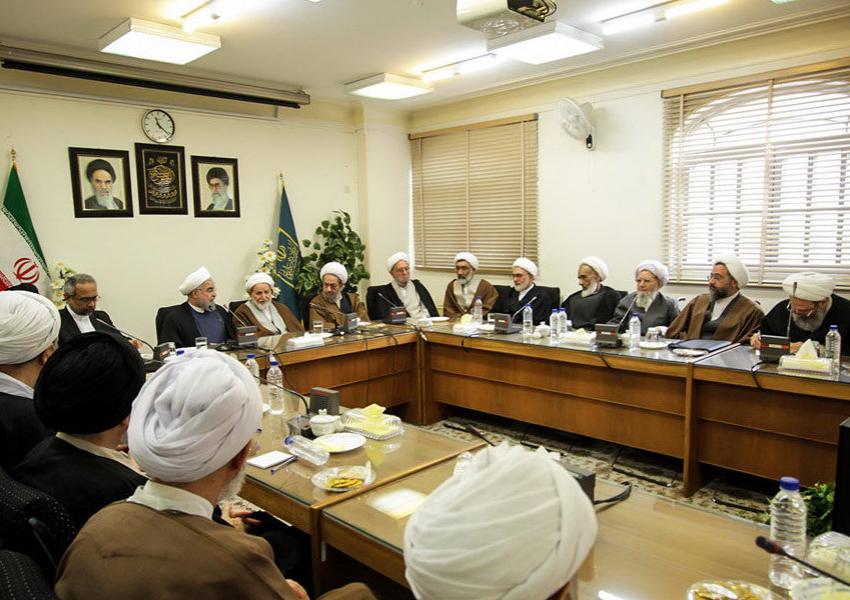
With the beginning of Ramadan, while the coronavirus disease is reportedly increasing in certain regions of Iran, there is still no final decision on whether to reopen religious places or not.
While Alireza Marandi, the physician and adviser to Iran’s supreme leader, has written a letter to Hassan Rouhani calling for shrines and mosques to be reopened, Mohammad Reza Zafarghandi, head of the Medical Council of the Islamic Republic, in a letter addressed to Rouhani, has warned about reopening unnecessary and uncontainable places like religious sites.
Considering official statistics indicate a slowing down of the coronavirus outbreak and the government’s easing of restrictions, several Friday prayer leaders and some groups have called for shrines to be reopened and the ban on Friday prayers to be lifted.
Ahmad Almohad, Mashhad Friday Prayer leader, said in this regard, “The doors of mosques and shrines have been closed on the people during the month of Ramadan, and they cannot go to these places for their worship.” Pointing to restrictions on economic activities being eased, Alamolhoda said that it is not desirable that mosques and shrines are still closed while economic activities are resumed.
Iranian President Hassan Rouhani, in response to such demands, promised during a meeting at the National Headquarters for Combatting Coronavirus, that mosques, religious places, and places for holding Friday prayers can be reopened with certain protocols in the so-called “white zones.” Rouhani also warned that if health regulations are not observed in these zones, the situation might go back to yellow and even red, and restrictions might be reimposed.
Meanwhile, Fars news agency, which is affiliated with Iran’s security forces and the IRGC, said many “spontaneous groups” and campaigns have called for restrictions on mosques and shrines to be lifted, given the fact that markets, shopping centers and parks have reopened in Iran.
Iranian media, in the meantime, have reported that many religious groups have paid no attention to the protocols of the National Headquarters for Combatting Coronavirus for holding religious ceremonies during the month of Ramadan in some cities including Tehran.
Seminary Students and Clerics Call for Arresting the ICT Minister
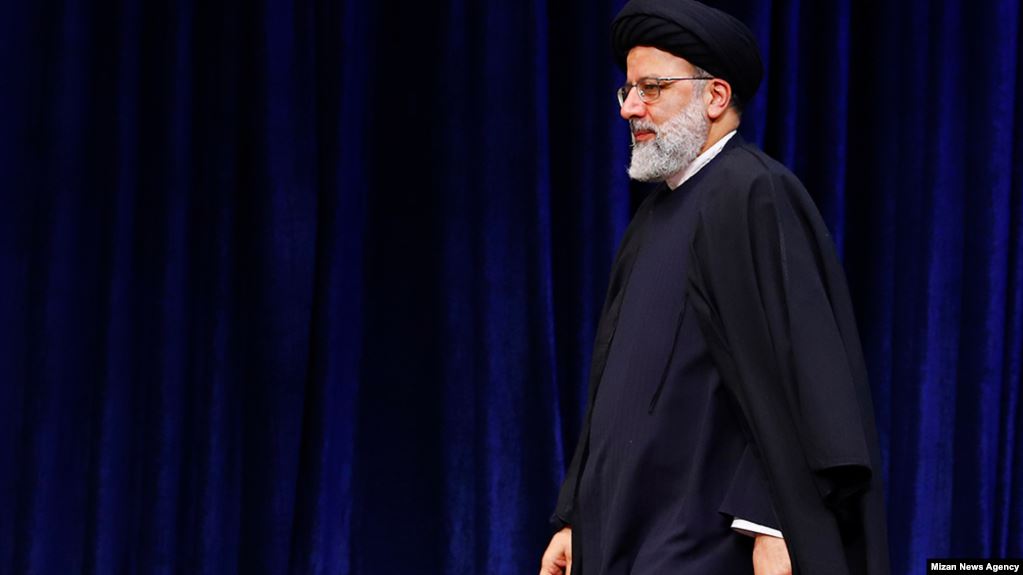
A number of seminary students and clerics, in a letter to Iran’s chief justice, have called for the head of Iran’s Supreme Cyberspace Council and the minister of Information and Communications Technology (ICT) to be arrested and tried as “prime suspects” for allowing “moral laxity” in cyberspace.
The signatories, according to Fars news agency affiliated with the IRGC, are from the Qom seminary, as well as seminaries from 65 other cities.
They have addressed Chief Justice Ebrahim Raisi, explicitly calling for Abolhassan Firoozabadi, head of the Supreme Cyberspace Council, and ICT Minister Mohammad Javad Azari Jahromi to be arrested as prime suspects. They have urged that these two have “repeatedly killed time and have not fulfilled their duties during the past five years.”
The signatory clerics said the performance of Jahromi and Firoozabadi “pleases the enemy,” offering a list of their errors including: not launching a national data network, supporting Telegram and Instagram, and developing cyberspace, thus paving the way for the degradation of cultural values and increasing moral laxity.
Generally, Iranian clerics are not in favor of cyberspace and have always strongly criticized social networks in Iran.
Earlier, Ayatollah Nasser Makaram Shirazi, one of the Shiite sources of emulation, had called the internet “a dangerous, stinking swamp” for the youth, saying that “anti-religious, immoral topics are issued” in social networks.
The Minister of Culture Warns Tehran City Council Over Coronavirus Stats
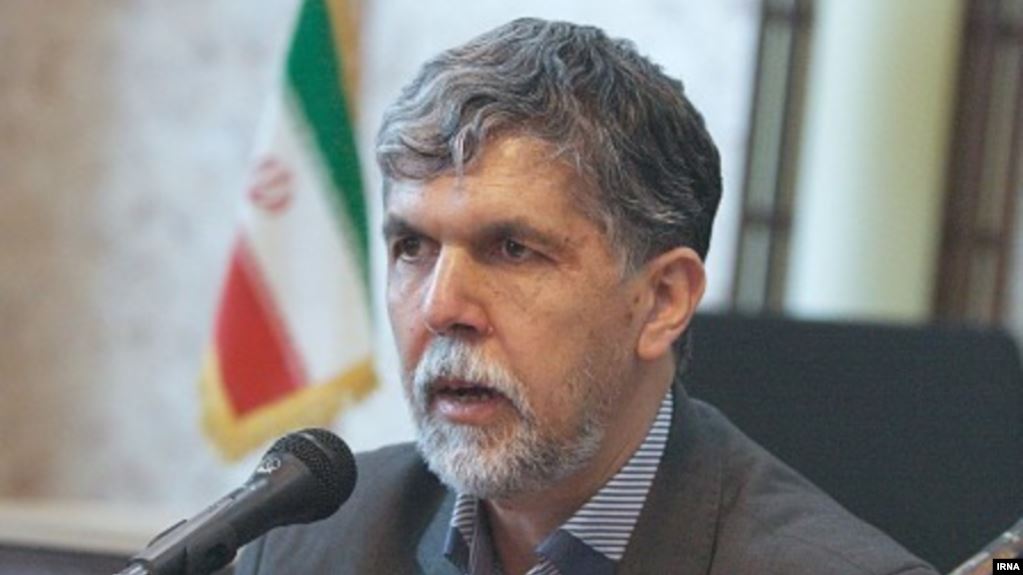
Iran’s Minister of Culture and Islamic Guidance Abbas Salehi has warned members of Tehran City Council to rely on the Health Ministry when speaking about coronavirus statistics in the country, so that the “hostile media” cannot take advantage of their words.
Salehi, in a letter to the head of Tehran City Council, asked council members to avoid talking about coronavirus statistics based on unofficial sources or “in contradiction with decisions made by the National Coronavirus Combat and Prevention Headquarters” as this would “agitate the public mind.”
Salehi also pointed out that if the Tehran City Council members have any questions in this regard, officials at the National Coronavirus Combat and Prevention Headquarters can answer them in a “closed session.”
The coronavirus tally announced by Iran’s Health Ministry has been questioned by a number of officials, including Tehran City Council members. Mohsen Hashemi, head of this council, recently noted that the real tally is much higher than what the Health Ministry announces.
Nahid Karami, another member of Tehran City Council, remarked last week that everyday 70 to 100 individuals – who have lost their lives due to the virus – are buried in this city.
Deprived Families to Suffer the Most from the Coronavirus, Says Parliament Research Center
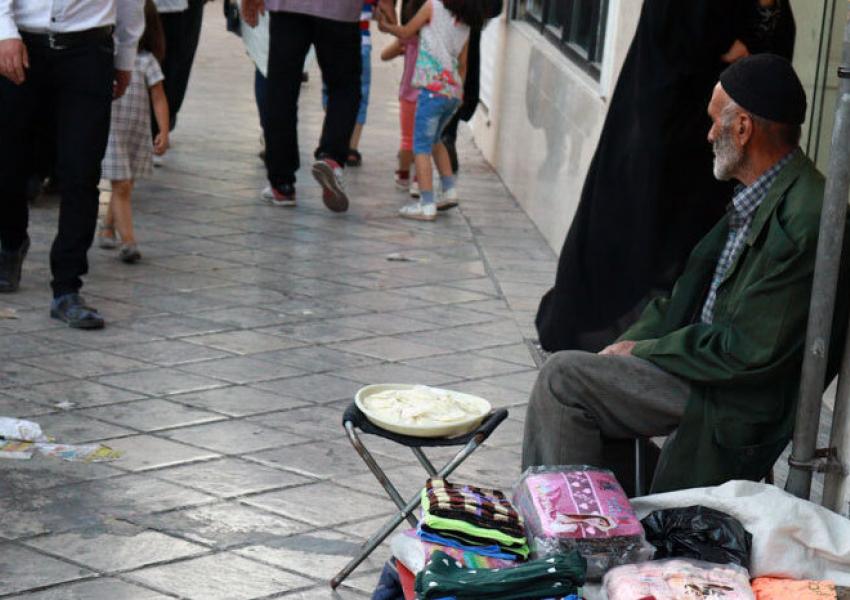
A report looking at the impact of the coronavirus crisis on the economy and employment, written by the Iranian Parliament Research Center, says that this crisis will intensify inflation and recession across society, with deprived families facing more problems than anybody else.
According to this report entitled, “Assessing Large-Scale Economic Dimensions of the Coronavirus Outbreak,” Iran’s economy had gone through two tough years even before the outbreak of the coronavirus and is now experiencing a decrease in fixed capital.
The report has mentioned that the coronavirus crisis will impact livelihoods, while deprived families are going to experience the greatest impact on their incomes.
The Iranian economy contracting due to the coronavirus disease will also affect deprived families and the distribution of income within society.
On the other hand, any government support policies, Parliament Research Center urges, will likely create inflation in the economy. According to the center, costs in the health and medical fields will increase, while oil and tax revenues will decline.
While Iranian officials confirm that the country’s economy is facing tough problems due to the coronavirus crisis, Iranian President Hassan Rouhani emphasized in his recent remarks that everything is “okay” in the country.
25 Employees of Iran’s Central Bank Prosecuted for Forex Violations
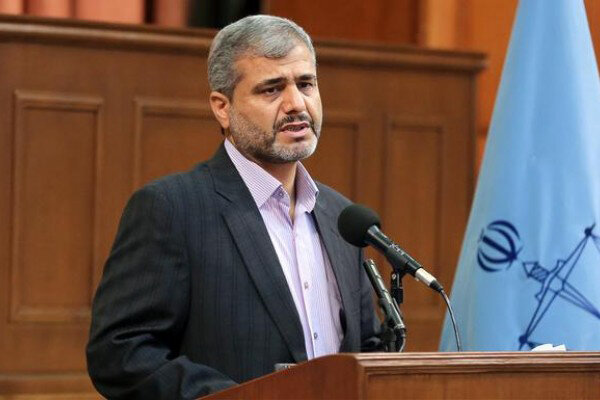
Tehran Prosecutor Ali Alghasi Mehr announced that 25 employees of the Central Bank of Iran (CBI) have been prosecuted in relation to forex violations.
“As for forex violations, in addition to the offenders who had received foreign exchange, 25 CBI staff, including directors have been prosecuted,” asserted Alghasi Mehr.
He also stated that a committee comprised of the Supreme Audit Court (SAC) and the Ministry of Industry, Mines and Trade, as well as Iran’s customs organization are to investigate the recent SAC report regarding financial violations.
The SAC published a report on April 14, saying $31 billion had been given to importers in 2018, and $4.8 billion was missing. The report has fueled considerable controversy among Iran’s executive and judicial branches.
Fourth Medical Shipment from Germany Enters Iran
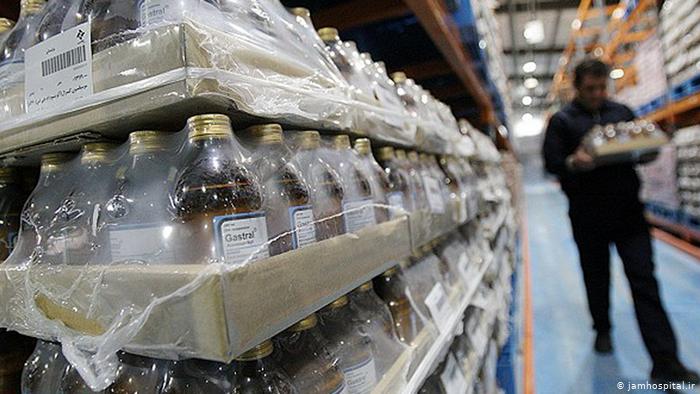
The CEO of Bazargan Customs office announced that the fourth shipment of medical supplies from Germany entered Iran through its borders with Turkey. The medical shipment was delivered to Iran after the United States issued a permit allowing financial transactions with Iran’s Central Bank.
Sadegh Namdar, CEO of Bazargan Customs Office, asserted that the German medical shipment consisted of 20,763 kg of different medical products, worth 250,000 euros.
The first shipment of 26 tons of medical supplies purchased from Germany entered Iran through its borders with Turkey three weeks ago.
Exporting medicines and other humanitarian items to Iran was made possible after America’s consent. The US Department of Treasury issued a permit for financial transactions with Iran’s Central Bank on February 27 – allowing for medical supplies and foods to be exported through a Swiss financial channel.
The humanitarian channel, called SHTA, which works under the US Department of Treasury, started operating from January 30, 2020, to make it possible to export medicines, medical supplies, agricultural items, and edibles that are exempted from the US sanctions against Iran.
